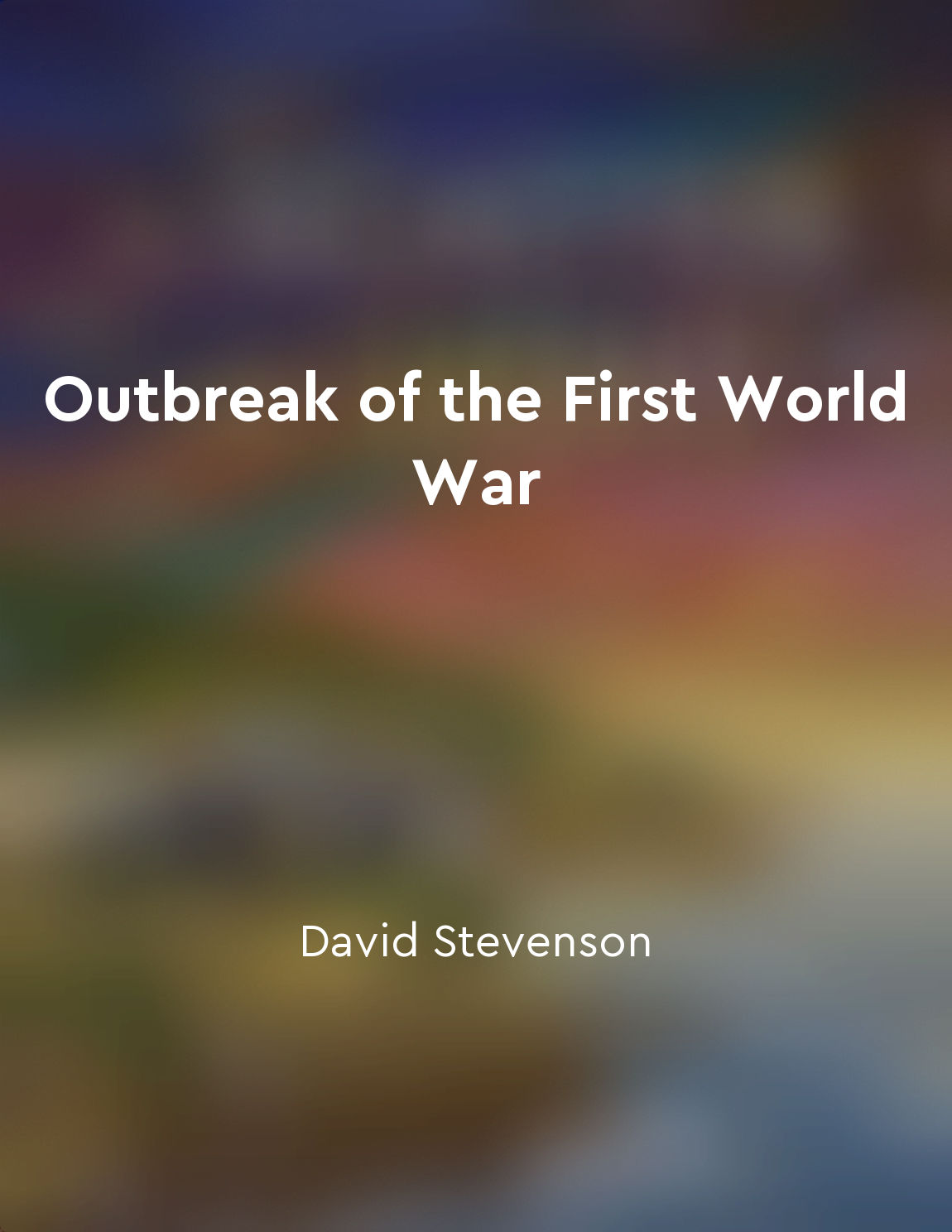Seeds of future conflicts sown in postwar settlement from "summary" of The Origins of the First World War by Annika Mombauer
The peace settlement that followed the First World War can be seen as a breeding ground for future conflicts. The Treaty of Versailles, signed in 1919, imposed harsh penalties on Germany, which many Germans viewed as unjust and humiliating. This sense of resentment and injustice created fertile ground for the rise of extremist ideologies like Nazism in the 1920s and 1930s. Furthermore, the redrawing of national boundaries in Europe after the war created new ethnic tensions and territorial disputes. The breakup of the Austro-Hungarian and Ottoman empires led to the creation of new states with diverse populations, often leading to internal strife and external conflicts. For example, the creation of Czechoslovakia from parts of the former Austro-Hungarian Empire left large German and Hungarian minorities within its borders, fueling resentment and nationalist sentiments. The failure of the postwar settlement to address the underlying causes of the First World War also contributed to the seeds of future conflicts. Major powers like France and Britain sought to maintain the status quo and prevent Germany from rising again as a dominant power, but their attempts to contain Germany only served to increase tensions and resentment. In addition, the economic consequences of the war and the Great Depression of the 1930s further destabilized Europe, paving the way for the rise of aggressive dictators like Hitler and Mussolini. These leaders exploited the weaknesses of the postwar settlement to advance their own expansionist agendas, leading to the outbreak of the Second World War in 1939.- The peace settlement that followed the First World War failed to address the underlying causes of the conflict and instead sowed the seeds of future conflicts. The Treaty of Versailles, the redrawing of national boundaries, the economic consequences of the war, and the rise of aggressive dictators all contributed to the instability and tensions that ultimately led to the outbreak of the Second World War.
Similar Posts
Establishment of concentration camps for political prisoners
The establishment of concentration camps for political prisoners was a key aspect of the Nazi regime's brutal repression of dis...
Nuremberg Trials and pursuit of justice
The Nuremberg Trials represented an attempt to bring some semblance of justice to the perpetrators of the Holocaust. The trials...
Military strategies prioritize offense over defense
According to Mombauer, military strategies in the lead-up to the First World War often emphasized the importance of taking offe...
Global trade
The idea of international commerce is of profound importance in the modern world. It is not only a source of material wealth, b...
Blockades impact civilian populations
Blockades have far-reaching consequences beyond simply cutting off the flow of goods to a particular area. The impact of blocka...
Hitler's egomania and delusions of grandeur led to strategic blunders
Hitler's belief in his own genius and infallibility was a central characteristic of his leadership style. He was convinced that...
The war revealed the limitations of leadership
The First World War was a cataclysm that exposed the shortcomings of leadership in a way that had never been seen before. As na...
The July Crisis pushed Europe to the brink of war
In the scorching summer of 1914, Europe was on the precipice of a catastrophic conflict. The assassination of Archduke Franz Fe...

Involvement of colonies and territories
The involvement of colonies and territories played a significant role in the outbreak of the First World War. The European powe...

